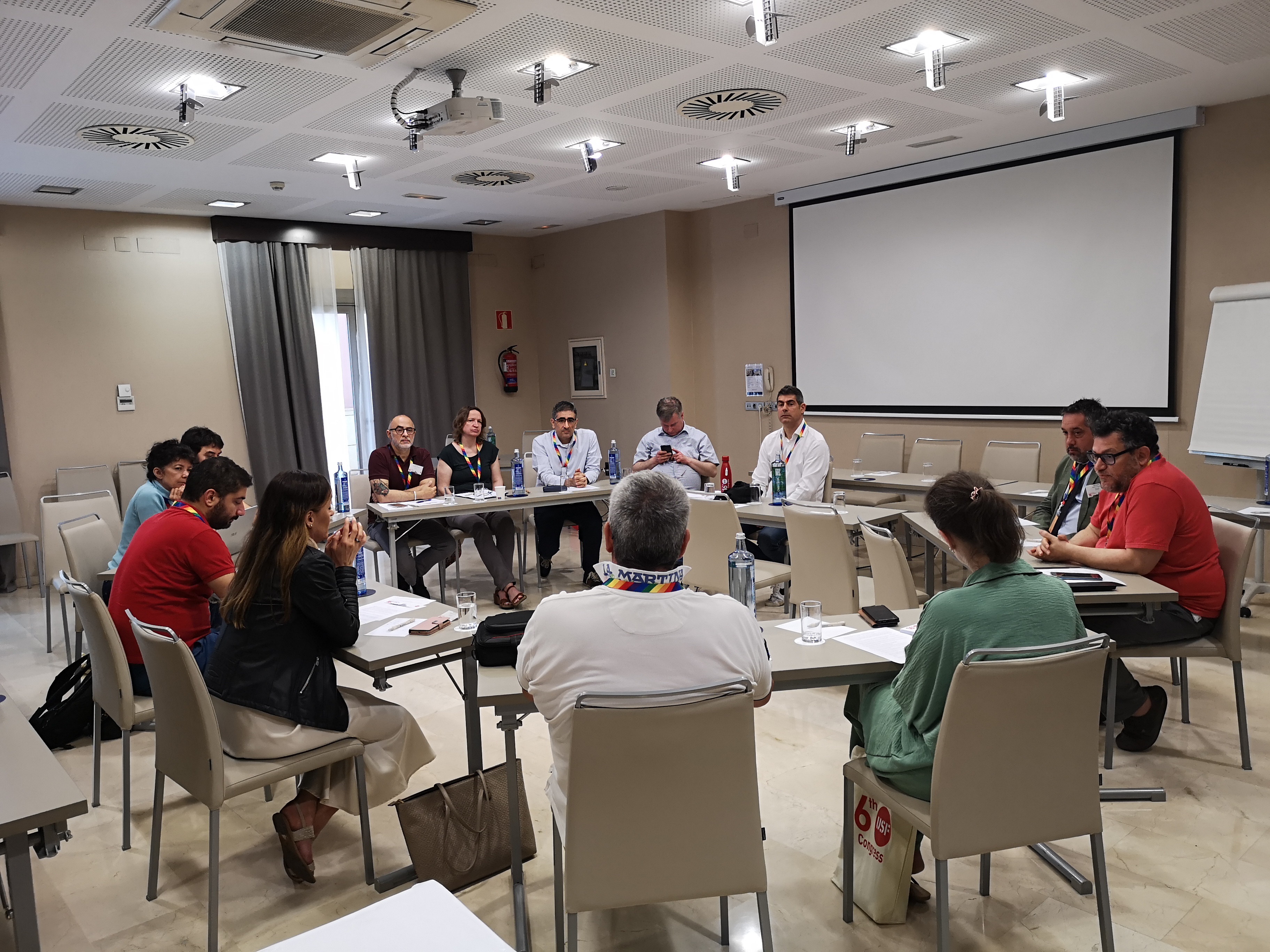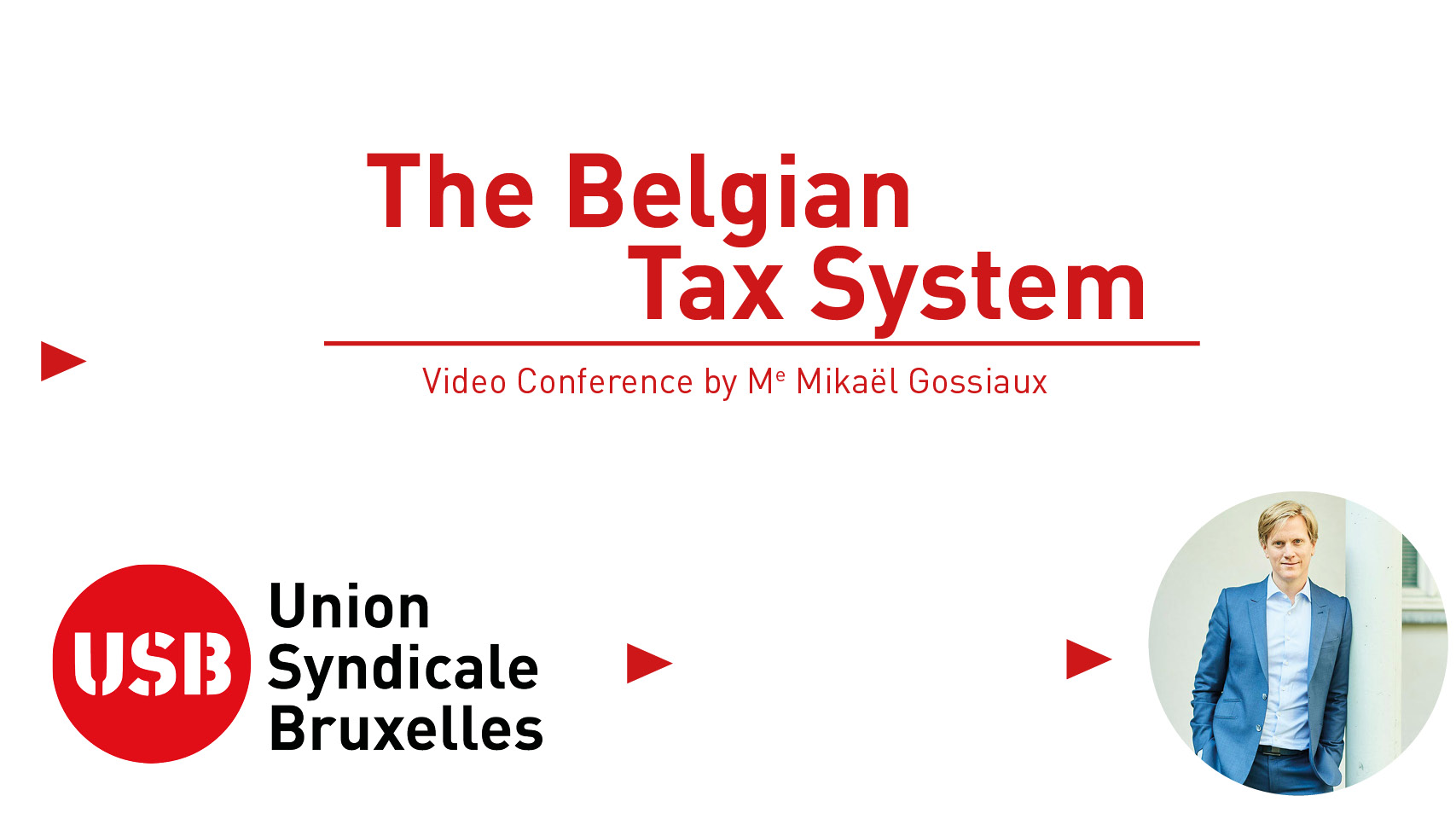Harassment in the workplace is not a recent concept, a vanished evil that is resurfacing. Harassment has always been present and the European institutions and international organisations are no exception. The resulting psychosocial risks are too often minimised and considered to have little impact on the entire working environment.
It is a real scourge that is rife at all levels and Union Syndicale considers that harassment still does not benefit from a clear definition in the European Institutions that would allow it to be better identified, countered and sanctioned. The International Labour Office (ILO) also comes to the same conclusion: “There is as yet no universally accepted definition of the concepts of violence or harassment in the world of work, and this is partly due to the fact that the corresponding terminology has not yet been standardised” . In order to be detected and denounced, it requires a precise denomination which would leave no room for feelings, too often influenced by the frame of reference of the persons concerned.
The European Commission, in this case, bases itself on an obsolete conception of harassment, which no longer takes into account the changes that have taken place in the world of work as a whole. It creates an amalgam between “inappropriate behaviour” and “harassment”. These two types of behaviour are quite distinct and both must be punished. A quick reminder: Article 24 of the Staff Regulations stipulates that “the Union shall assist the official, in particular in any legal proceedings against the perpetrators of threats, insulting or defamatory acts or utterances, defamation of character or attacks against him or her or members of his or her family by reason of his or her position or duties. “Harassment constitutes an offence and should therefore be punished accordingly. We recall Article 12 of the European civil service which stipulates that “An official shall refrain from any action or behaviour which may reflect adversely on the dignity of his position”. The competent authorities must therefore provide a non-hostile working environment where the rights of their staff are respected and protected. Harassment needs to end in the European Institutions.
Your US representatives have been working together at the Commission since September 2019 to change the definition provided by the institutions in 2004 (!). They want to redefine the concept of harassment so that it can be firmly established in the Staff Regulations and take better account of changes in the working conditions of European public service staff. Indeed, account should be taken not only of the physical but also of the psychological and sexual dimension of harassment. Discrimination, inappropriate behaviour, psychological and sexual harassment must be included in the definition of harassment. They are, moreover, included in Article 12a of the European civil service: “Moral harassment shall mean any improper conduct which manifests itself in a sustained, repetitive or systematic manner by means of conduct, words, actions, gestures and writing which are intentional and which affects the personality, dignity or physical or psychological integrity of a person. Sexual harassment means behaviour with a sexual connotation that is unwanted by the person against whom it is directed and that has the purpose or effect of violating that person’s dignity or of creating an intimidating, hostile, offensive or embarrassing environment. Sexual harassment is treated as discrimination on the basis of sex. “Unfortunately, a precise definition is currently lacking. For Union Syndicale, this is a major issue which needs urgent updating.
Moreover, decision-making bodies must take into account not only changes in the world of work but also cultural differences that are injected into interpersonal relationships. Indeed, the multiculturalism that characterizes our institutions must be a strength, not a limitation. It makes working processes more complex than anywhere else, but it must remain a source of richness that allows European institutions and international organisations to evolve. To this end, our working group is participating in the development of a set of guidelines to provide a precise framework for the concept of harassment in the workplace, taking into account these various factors.
The competent authorities must therefore identify possible situations of harassment because it has several disastrous consequences not only for the victim but also for the entire department concerned: loss of motivation due to a lack of satisfaction, physical or psychological stress, absenteeism due to illness that may be prolonged, etc. For Union Syndicale, 4 important pillars must come into play in the workplace:
1) Prevention: in order to be durably eradicated, harassment must be the subject of awareness-raising campaigns among staff. Conferences, symposia, workshops, etc. must enable workers to receive relevant, practical and comprehensive information. Union Syndicale also calls for a diagnosis of the situation through a systematic risk analysis. The aim of this prevention phase is to identify so-called “harassment” behaviour and to open up the debate on what is acceptable or unacceptable in the working environment.
2) Detection: if prevention has not been effective or is non-existent, the detection of these behaviours must be improved. How can this be done? By carrying out awareness-raising actions with people you trust, by using a mediation service and by calling on the medical service to provide support and follow-up. However, Union Syndicale’s position is very clear: the presumption of innocence is paramount but must not hinder or distort the perception of the harassment case. It is therefore essential to alleviate the difficulties of proof by establishing a protocol enabling trained professionals to detect rational indications of the existence or otherwise of harassment. In addition to the usual conditions of impartiality, transparency, prosecution and defence investigations, etc., investigations must take account of the following: In cases of harassment, the facts are difficult to prove, and evidence is almost non-existent. This should not lead to a reversal of the burden of proof, as the presumption of innocence is one of the pillars of our legal system.
3) The sanction: must be commensurate with the facts but also benefit from a less cumbersome and more efficient procedure. It is indeed unthinkable to leave the victim in a situation of psychological distress during the whole period of the proceedings, which can be very long (up to two years in some cases).
4) Remediation: it must be possible to put in place follow-up and support so as not to stigmatise the person concerned and to prevent the harassment from recurring. It must be possible to recommend psychological support as well as specific workshops so that harassment is no longer normalized within the work environment.
Union Syndicale intends to work towards the establishment of clear, unambiguous guidelines which would make it possible to obtain a more precise framework for action everywhere, including in executive agencies and non-Community organisations. We will, of course, keep you informed of our progress.
Interested in the subject? Here is more information:
–Ilo document about ending violence and harassment in the Workplace (only in french). Here’s also another document about the same topic.
–OSHA document about psychosocial risks and stress.
–EIGE article about gender based violence.
–Agora 76 about harassment in the European Institutions.








